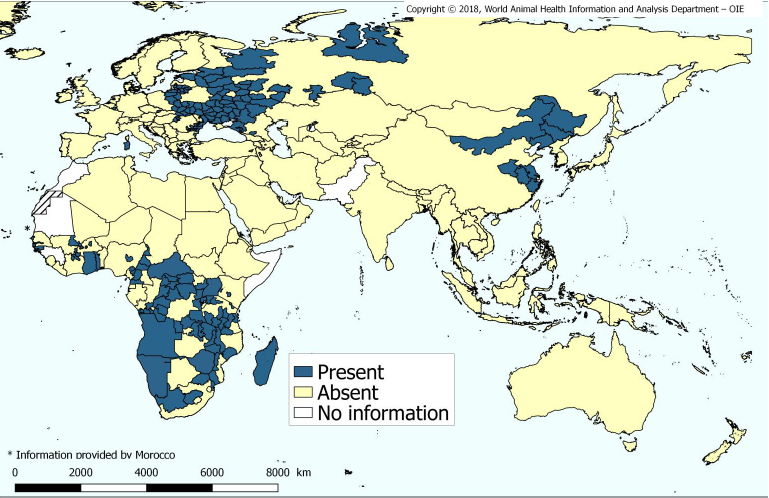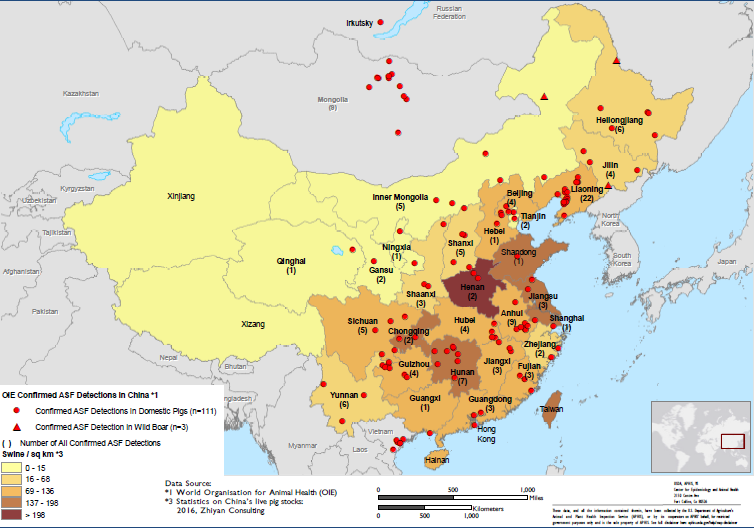> Animals
African swine fever disrupts world pig and industries related markets.
African swine fever (ASF) is a highly contagious hemorrhagic disease of pigs, warthogs, European wild boar and American wild pigs. There is no published treatment or vaccine, but on-farm biosecurity measures are essential. ASF is not a human health threat, and not a food safety issue.
With high virulence forms of the virus, ASF is characterized by high fever, loss of appetite, haemorrhages in the skin and internal organs, and death in 2-10 days on average. Mortality rates may be as high as 100%.
Sporadic outbreaks in Europe and in Central Asia occurred in the last decades, with limited international consequences. Since 2014, the disease spread throughout Russia and neighboring countries.
Global situation of ASF (2016-october 2018)

The situation accelerated in August 2018, when the first official case was reported in China, which produces half of world pig production. Due to high density of animals, the country’s industry structure and the fact that the animals have to be transported very long distances from farms to harvesting and processing facilities, this epizootic disease has rapidly spread to all of China’s major pork-producing provinces. There is a wide range of estimates, as numbers may be largely underestimated : some cases may not be reported to national authorities. Some pessimistic scenarios predict that ASF could be devastating, decimating China’s pig population by a third in 2019, up to 200 million animals, through a combination of the disease and culling. This figure can be compared to annual pig slaughters in the European Union (approximately 250 millions).
ASF cases in China (26 February 2019)

A dramatic reduction in hog population pushes inflation on staple food products consumed by Chinese population. It is also sending shock waves through international agricultural markets. Even if the poultry industry can rapidly increase production capacity, Chinese government is forced to import substantially more pork or other protein to feed its people. It is likely that Chinese small pig farms will not fully recover from this crisis. Consequences for other countries are still difficult to predict as the epidemic is still expanding at international scale. Vietnam announced that two millions pigs were culled, just 4 months after the country reported the first case in February 2019. Some pork exporting countries which are free from the disease, and other meat protein industries may benefit from such exceptional situation.
